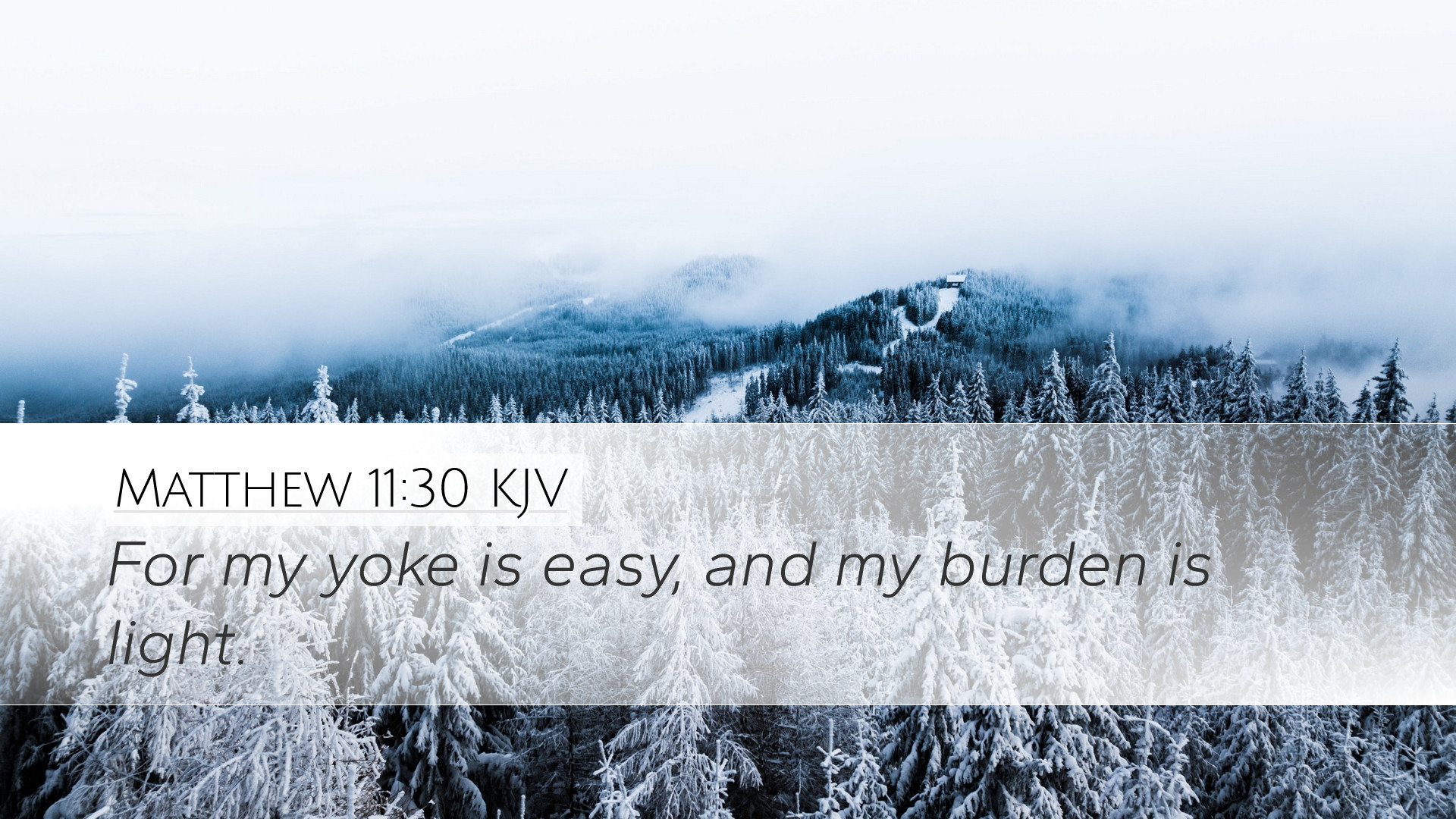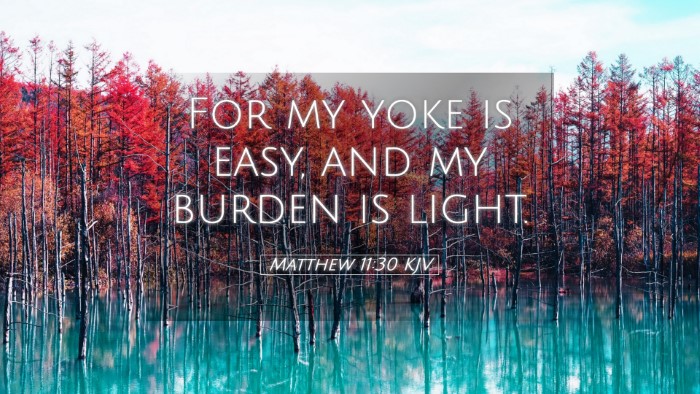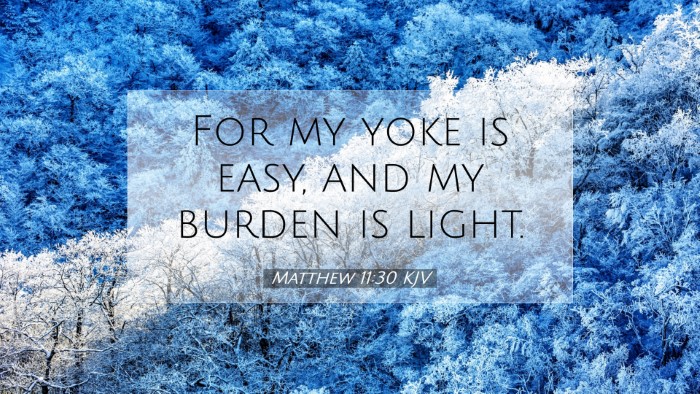Commentary on Matthew 11:30
Verse: Matthew 11:30 (KJV)
"For my yoke is easy, and my burden is light."
Introduction
Matthew 11:30 provides profound insight into the nature of discipleship and the relationship between Christ and the believer. This succinct verse captures the essence of Christ’s invitation to find rest in Him. The renowned commentators Matthew Henry, Albert Barnes, and Adam Clarke offer valuable perspectives that deepen our understanding of this Scripture.
Exegesis of the Verse
-
Matthew Henry's Commentary
Henry emphasizes the contrast between the burdens imposed by the religious leaders of the time and the lightness of Christ’s yoke. He points out that the "yoke" symbolizes a call to discipleship, which involves submission to Christ's lead. He writes, “He speaks for our comfort, that we may be encouraged to follow Him.” The nature of Christ’s yoke is such that it does not constrict or oppress; instead, it guides and facilitates spiritual growth.
-
Albert Barnes' Notes
Barnes elaborates on the concept of "easy" in this verse, suggesting that it refers not to the absence of trials but to the sense of peace and comfort found in accepting Christ’s guidance. He notes that the burden of sin and the world's pressures can be overwhelming, yet Jesus offers an alternative light burden. Barnes highlights that to bear the yoke with Christ is to experience a mutual bearing of burdens, illustrating the profound relational aspect of our walk with Him.
-
Adam Clarke's Commentary
Clarke offers a nuanced view of the word "burden," associating it with the moral weight believers experience in their service to God. He contrasts the weight of legalistic religion with the grace-filled yoke Jesus offers. Clarke encourages readers to perceive this yoke as not only manageable but also as an expression of Christ’s love and companionship, signifying a partnership in ministry and mission.
Theological Implications
This verse carries rich theological implications, particularly regarding the nature of Christ’s sovereignty and grace. Each commentator highlights the grace-filled nature of Jesus' call to discipleship:
- Christ’s Invitation: The invitation to take up the yoke is an expression of Christ’s gentle leadership. He assures us that His guidance will not be burdensome, reflecting the character of God as compassionate and tender (Henry).
- Relational Aspect: The burden and yoke are presented as a partnership. When believers yoke themselves with Christ, they are not bearing struggles alone; Jesus provides strength, sustaining grace, and support in every step of the journey (Barnes).
- Freedom in Christ: Owning the yoke of Christ leads to true freedom, in contrast to the heavy-handed regulations of the Pharisees. The emphasis is on the liberating power of grace that empowers the believer (Clarke).
Practical Applications
The insights from these commentators encourage various practical applications for believers:
- Rest in Christ: Believers are called to rest in Christ’s provision and leadership. Acknowledging the lightness of His burden can lead to a deeper experience of peace amid life’s challenges.
- Community and Support: Understanding that discipleship is a shared journey fosters community among believers. Encouraging one another in light of this verse can alleviate feelings of isolation and overwhelm.
- Ministry Perspective: For pastors and ministry leaders, this verse serves as a reminder to lead with grace rather than imposing heavy burdens. Effective ministry must reflect the lightness of Christ's call to those it serves.
Conclusion
Matthew 11:30 encapsulates the heart of the Gospel message, extending an invitation to embrace the grace that Christ offers. The combined insights from Henry, Barnes, and Clarke invite believers to experience the joy of yoking themselves with Jesus. In choosing to follow Him, one learns that His ways are indeed pleasant, and His burdens are light, ensuring that each disciple can navigate life's challenges with divine assistance and spiritual rest.


